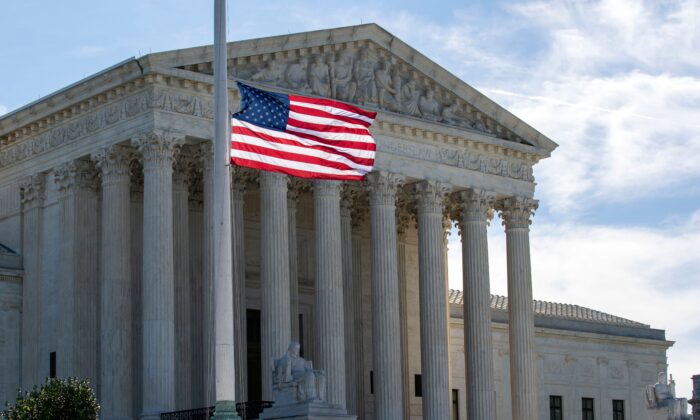The Democrats’ call to add more justices to the Supreme Court is but an “empty threat,” said Hans von Spakovsky, a Republican lawyer and former member of the Federal Election Commission.
With President Donald Trump and the Republican-dominated Senate poised to nominate and confirm a conservative Supreme Court Justice to fill the vacancy left by liberal Ruth Bader Ginsburg, some Democrats have revived the radical idea of expanding the size of the high court. Von Spakovsky said the Democratic court packing is unlikely to happen.
“The Constitution does not specify how many justices are on the U.S. Supreme Court that set by statute, but it has been nine justices now for a very, very long time,” said von Spakovsky during an interview on Epoch Time’s “Crossroads,” when asked about the possible Democratic attempt to pack the Supreme Court.
“The only way the Democrats could somehow retaliate is if they control the House, the Senate, and the White House,” von Spakovsky told host Joshua Philipp. “And that’s the only way they could pass a law doing that.”
“I don’t think that’s going to happen in the next election, even though the next election is somewhat unpredictable,” he continued. “But again, I think it’s a bad idea, because it really shows that they want the court to act in a political manner that they believe that their nominees will basically further their partisan political views, rather than applying the Constitution and the statutes passed by Congress as they’re written.”
The reason the fights over the justices have become so intense, according to von Spakovsky, is that the Supreme Court has overstepped its constitutional mandate to act as a “super Congress” that legislates from the bench, and one of those who pushed the change was Ruth Bader Ginsburg.
Von Spakovsky also dismissed the threat of a second impeachment by Democrats to stop Trump’s Supreme Court nomination, calling it “absurd” to impeach a president for exercising his constitutional authority.
“If Democrats think that would not make them look bad with the American people, I think they’re mistaken,” he said.
The number of Supreme Court justices was set at six when George Washington, the first U.S. President, signed the Judiciary Act of 1789 into law. It was briefly changed to 10 during the Civil War under Abraham Lincoln. In 1869, the Republican-controlled Congress passed another judiciary act to set the number back to nine, which has remained untouched for more than 150 years.
Focus News: Packing Supreme Court an ‘Empty Threat,’ Unlikely to Happen: Former FEC Member
Chinese State Media Reports New Zealand to Upgrade Trade via Belt and Road
